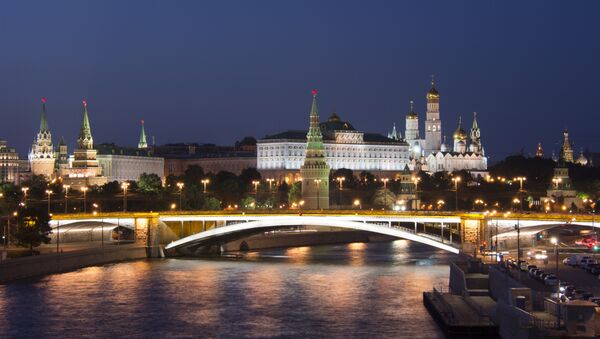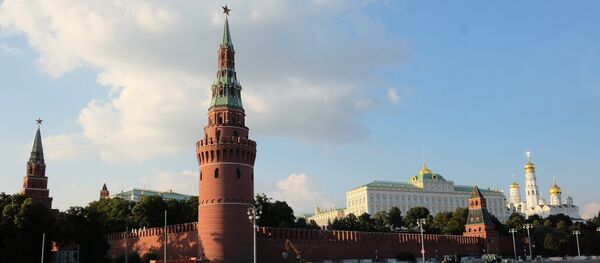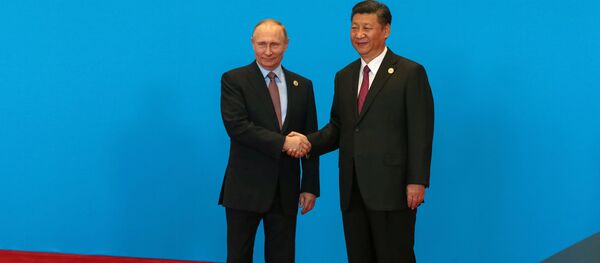"The recent One Belt, One Road International Forum held in Beijing was bound to succeed since a word uttered during a protracted global pause of ideas an additional weight. The event was not simply organized to discuss ongoing transport and infrastructure projects in Eurasia. They would have been carried out even if no one came up with an idea to name them One Belt, One Road. What is important is that Beijing offered an idea of what the world should do and the means of achieving these goals," the analyst said.
Kosyrev said that Moscow has made a large contribution to Beijing's initiative essentially turning it into a Chinese-Russian concept. He cited President Vladimir Putin's pointedly central role at all meetings held as part of the forum or in all photos taken during the event as a confirmation of Russia's new position.
"The idea itself was put forward by China in 2013. Putin's contribution is as follows: he brought the Eurasian Economic Union (EAEU) on board and outlined the goal of establishing a single space of cooperation across Eurasia," the analyst explained. In other words, "Russia said that the world cannot and will not operate according to the conditions and principles that Western countries consider to be a norm. For its part, China has started showing how exactly the world can and wants to function."
"We will not follow the old way of geopolitical games to promote the Belt and Road Initiative, but create a new model of win-win cooperation," he said. "China is willing to share its development experience with the rest of the world, but we will not meddle in other nation's internal affairs, export our social system and development model or force others to accept them."
The two-day One Belt, One Road summit was held in Beijing on May 14-15, with the heads of 29 states and governments, including Russian President Vladimir Putin, taking part in the event that attracted delegations from more than 100 countries.
Kosyrev said that India, a country which has not openly embraced Beijing's megaproject, is slated to benefit the most from the One Belt, One Road. According to a report released by Credit Suisse, China would invest between $84 billion and $126 billion in projects in India, whose representatives have not taken part in the forum. India has long been wary of the venture that will see a closer relationship between China and Pakistan, a country embroiled in a territorial dispute with New Delhi.
Russia is expected to be another big winner, with Beijing estimated to invest up $80 billion in the country as part of its massive initiative.
Never miss a story again — sign up to our Telegram channel and we'll keep you up to speed!





